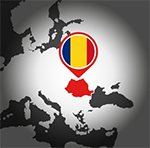BPO in Central and Eastern Europe
The end of the Cold War as well as the Fall of the Berlin Wall have opened up a vast economic region marked by rapid enterprise creation and by fledging free markets. This has triggered a profound transformation in Central and Eastern Europe. In order to accelerate the process of democratization and economic modernization, and in recognition of their “European” identity, the newly independent countries of the region applied to join the European Union (EU). The EU began as an organization (the European Community) of six member states; then it became a Community of 9, 12, 15 and today it consists of twenty eigth member states. The EU therefore has considerable experience of enlargement. Yet the last enlargement process was unprecedented in a number of respects. First, more countries joined at one time in the history of the EU. Ten Central and Eastern European countries (and two Mediterranean countries) are the newest members. Bulgaria, Romania and possibly Croatia hope to receive full EU membership status by the year 2007. Turkey is also a candidate for membership currently negotiating its status with the EU. A number of republics of the former Yugoslavia (Croatia, Bosnia, etc.) and the former Soviet Union (Ukraine) would like to apply for membership.
The most recent EU members, apart from the Mediterranean ones, are former communist countries. Their level of economic development is much less than that of the existing member states. As a result, the current integration poses a major administrative, economic, and political challenge not only for the new members, but also for the original 15 members. This article will examine the challenges of integration for the original member states, the new member states, the prospective ones, and the consequences for businesses.
Romanian creative talent

Romania's creative, dedicated and motivated staff drive the ICT sector. Spanning from video games creation to anti-virus protection, Romanian experts and engineers strive for excellence. Leveraging their multicultural and multilingual skills, they are able to tackle challenging projects across a range of industries by lending their expertise to specific problems and different sets of backgrounds.... Read more about Romanian creative talent >>
Technical excellence in Romania

The high technical skills of Romanian IT professionals provide the capabilities and qualifications necessary to meet the needs of all international clients. Their technical and industry experience range from computer-aided design/computer-assisted manufacturing (CAD/CAM), mechanical engineering, artificial intelligence (AI), information security and BPO, as well as embedded software and telecom equipment... Read more about IT skills in Romania >

 Twitter
Twitter  Facebook
Facebook